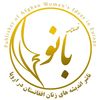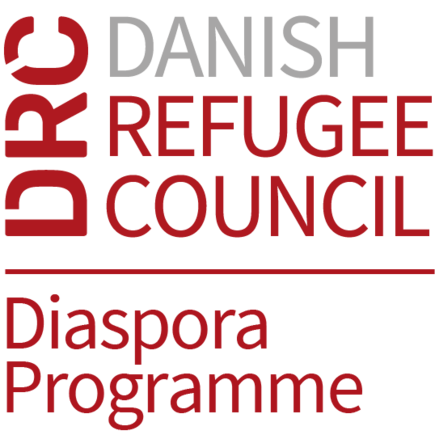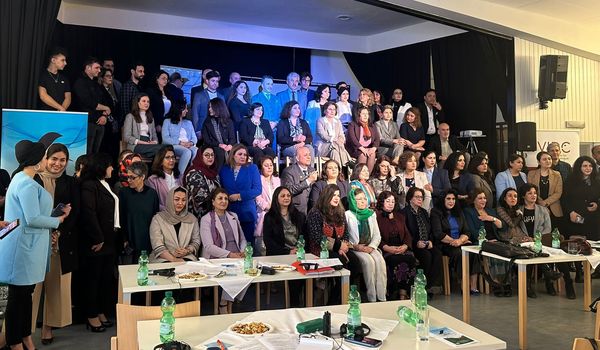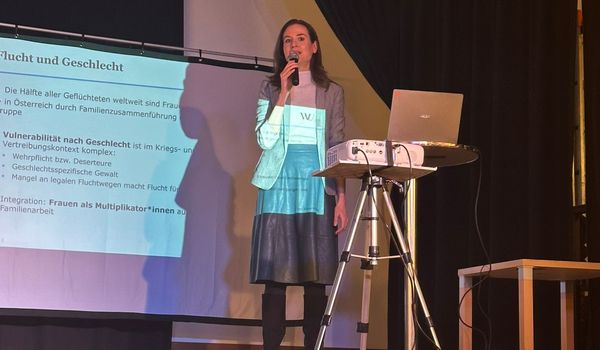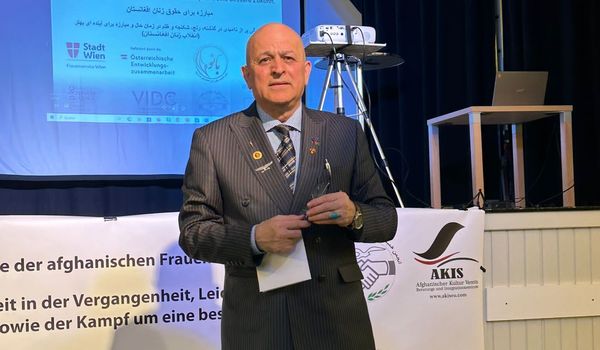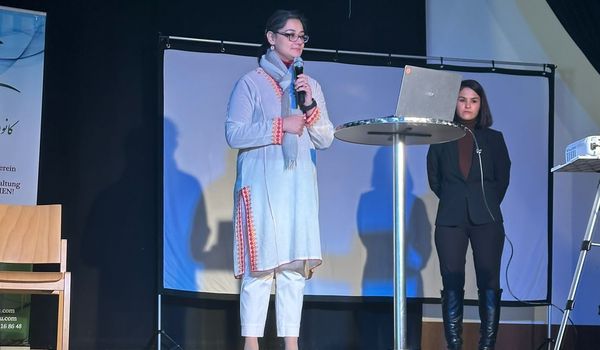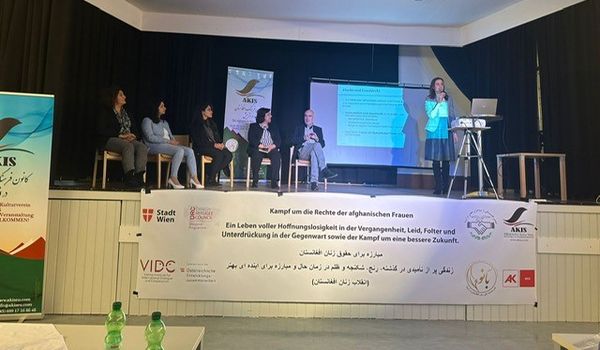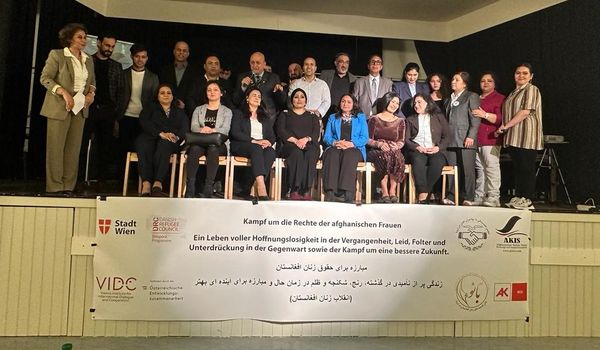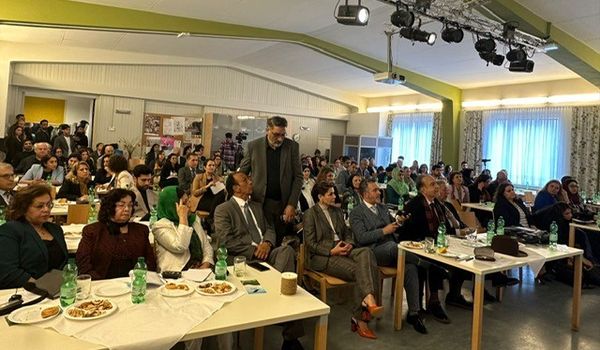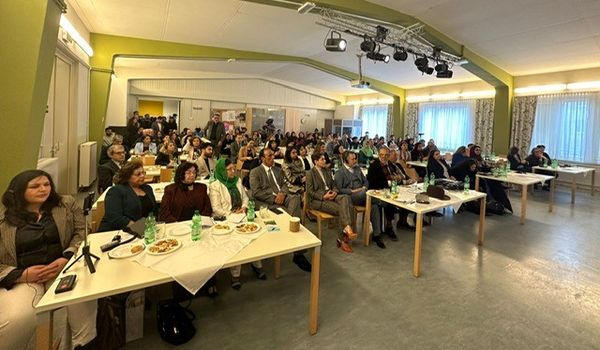Women's rights are the main topic of debate between the Taliban, the Afghan diaspora, and the rest of the world. The rights of 50% of the country's citizens appear to be determined by the fate of the Taliban government and how the international community wants to deal with the de facto authorities who have seized power through the use of force. They have implemented some of the strictest laws in the world since assuming power. And the majority of their harsh laws have disproportionately impacted women. The Taliban have almost eliminated Afghan women from public life since retaking power on the 15th of August 2021.
In order to discuss the Taliban's oppression of Afghan women and the challenges that Afghan women in the diaspora face in their host countries, the Afghan Culture, Integration, and Solidarity Association (AKIS) organized a conference on March 11th 2023 called “Fight for the Rights of Afghan Women” in partnership with the Vienna Institute for International Dialogue and Cooperation (VIDC) and the Danish Refugee Council (DRC). The goal of AKIS was to network, build new alliances, and raise awareness of the plight of Afghan women among people in Europe. The event in Vienna was attended by 150 members of the Afghan diaspora from Austria, the United States, Germany, Norway, Sweden, Turkey, the Netherlands and Switzerland.
Taliban edicts against women
The Taliban's most recent edict, issued in December 2022, prohibits women and girls from attending universities and working places at local and international non-governmental organizations (NGOs). Many people, particularly the Afghan diaspora, were stunned by this edict. Heela Najibullah, a researcher on peace and reconciliation who spoke at the women's conference in Vienna, claimed that in 2021, 11 out of the Taliban's 25 edicts were directed toward women. Out of 53 edicts issued in 2022, 42 of them targeted women that banned women from working for NGOs and attending universities.
Since the Taliban's return following the chaotic withdrawal of American forces in August 2021, girls in grades beyond sixth have been prohibited. Every day, the options for women and girls become more limited. Since they feel like their opportunities are limited, so many girls have turned to religious education. According to Reuters, the number of girls attending religious schools has doubled in the provinces of Kabul and southern Kandahar. Najibullah is worried about young Afghan girls being exposed to "extremist radical ideology," not about studying Islam as a religion. She asserted that religious schools are being established all over the country, from the central Daikundi provinces to Paktia in the southeast.
Najibullah claimed that because of the Taliban, Afghanistan lost its internationally recognized government and its territorial integrity due to the presence of extremist groups in her country of origin. According to her, Afghanistan has also become a ground for the rivalry between superpowers, including China, Russia, and the U.S. She also warned against the imposition of radical, extremist ideology in Afghanistan. “The Taliban are an extremist ideological group whose members are still on the United Nations terrorist sanctions list.”
“We fight for equality and freedom”
In January 2022, the Taliban arbitrarily imprisoned a vocal advocate of women’s rights, Tamana Zaryab Paryani, and her sisters after they participated in protests called “Naan, Kaar, Azaadi—Bread, Work, Freedom” to demand their rights and freedom. After nearly one month in the Taliban’s prison, Paryani and her sisters were released, and they fled to Pakistan before being evacuated to Germany. As a keynote speaker at the Vienna conference, Paryani vowed that, ever since she moved to Germany, she would raise the voices of Afghan girls and women who are oppressed by the Taliban regime. She will continue her advocacy until women achieve equality and freedom. She asserted that after being imprisoned by the Taliban, she had two choices: she could either remain silent in Afghanistan or she could leave the country and speak up for other Afghan women who are subject to the Taliban’s ruthless rule. She opted to leave.
“Our fight is not for bread and work, rather we fight for equality and freedom,” Paryani said during her speech at the conference. She pleaded with the international community to take action against the sexist ideology of the Taliban. Simply denouncing the Taliban would not stop the misogynistic Taliban from kidnapping, torturing, and raping women.
The impact of displacement on the mental health of Afghan refugee women

The condition of Afghan women and how displacement affects their mental health in Austria was the topic of Judith Kohlenberger's research presentation at the conference. A professor at the Institute of Socio-Politics at the University of Business in Vienna, Kohlenberger stated that the Afghan refugee women's recognition rate is higher than that of Afghan refugee men in Austria. In December 2022 and early 2023, respectively, Sweden and Denmark announced that they would automatically grant asylum to all Afghan women and girls "solely based on their gender.” The decision was made in response to escalating restrictions on women's rights and growing unpredictability for Afghans seeking asylum in Europe and other countries. According to Kohlenberger's research, it's also interesting to highlight the family structure of Afghan refugee women. The women from Afghanistan who are refugees are more likely to be married and live with their families including children in Austria.
Since arriving in Europe, Afghan immigrants have faced numerous difficulties in integrating into host societies. Women need more time than men do to fully integrate. They cannot sign up for language classes or eventually enter the labor market because they usually have 1-3 children. In the EU, women are not well integrated into the labor market, claims Kohlenberger. In contrast to 62% of refugee men, refugee women make up 45% of the labor force. She continued by saying that because women are frequently employed part-time, in precarious jobs, as domestic helpers, and subject to a variety of pressures and prejudices, all of these factors eventually have an effect on their mental health. According to her research, Afghan refugee women display greater psychological distress than Syrian or Iraqi refugee women. Her research's conclusions suggest that Afghan women are more psychologically affected than Afghan men.
Mobilizing solidarity
At the Vienna conference, a number of speakers asserted that the Afghan crisis is complex and that the international community is to blame for making it worse. In addition to women, the Taliban has declared a full-scale war against the Afghan population as a whole. Without a doubt, this war has been fought primarily by Afghan women. According to Shafiqa Razmenda, a human rights activist from Germany who attended the conference, there is no peace under the Taliban, despite the Taliban's claims that they have brought peace to the nation. She asserted that social harmony had vanished and that the Taliban had widened social division and fostered mistrust among Afghans.
During the opening speeches of the conference, the Chairperson for Women of the SPÖ Vienna Marina Hanke, Asye Sel from the Chamber of Labor Vienna and VIDC Director Sybille Straubinger, expressed their solidarity with the Afghan women. For Marina Hanke, the events in Afghanistan are a serious violation of women's and human rights. She argued that Austria should express its support for Afghan women. Asiye Sel also called for support for Afghan women. In her opinion, “the problem of Afghan women is not only an Afghan problem, but an international problem.” Sybille Straubinger emphasized that VIDC has been supporting the Afghan diaspora in Austria for many years. For VIDC, the diaspora is the best resource to support democracy, women's rights and human rights in Afghanistan because of their access to the civil society in the country. By working with the diaspora, VIDC aims to give perspective to the Afghan community in the diaspora.
Way forward
“If there is to be any meaningful change for freedom, not only for bread and work, the Afghan women in Afghanistan and the diaspora must be united,” Paryani said. She accused the Western countries of engaging with a “terrorist group” that is occupying her homeland. She asked the international community to put the Taliban on the travel ban list. Several participants, including Paryani, believe that the Taliban should be overthrown rather than reforming their policies to allow girls access to higher education and universities. “We must demand the elimination of the Taliban from our homeland,” Paryani concluded.
For Afghanistan to emerge from its current predicament, according to Heela Najibullah, “the people must be included in the decision-making process, especially the women of Afghanistan.” Najibullah asserts that in order for a legitimate government to take power and for Afghanistan to be neutral, “a people-centric process must be established.”
Fazull Mahmood Rahemee Pajwak, a representative of the Afghan embassy in Vienna, said at the conference, “without a doubt, if Afghanistan ever gains its freedom, women will have played a significant part in its liberation.” Shafiqa Razmenda echoed similar narratives. “I believe the women of Afghanistan will emerge as victorious,” Razmenda said.


